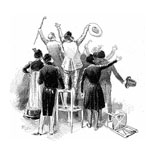
Halving & Having the Truth
NEWMAN ON LIBERALISM & ITS LIBERALLY EDUCATED DISCONTENTS
In The Idea of a University Bl. John Henry Newman famously renders liberal learning as “a habit of mind…which lasts through life, of which the attributes are, freedom, equitableness, calmness, moderation, and wisdom.” A liberal course of collegiate study, he clarifies, does not make the Christian, but it does inculcate a “cultivated intellect, a delicate taste, a candid, equitable, dispassionate mind, a noble and courteous bearing in the conduct of life.” The worldly and the pious can each and equally acquire such attributes. Liberal education does not promise habituation into moral virtues such as magnanimity and liberality; it is per se neither pro nor contra the Christian virtues. Liberalism, on the other hand, is inimical to the fundaments of the faith. If Newman is one of liberal education’s greatest friends, he is also one of liberalism’s surest foes.
Liberalism, Newman notes, is “the mistake of subjecting to human judgment those revealed doctrines which are in their nature beyond and independent of it, and of claiming to determine on intrinsic grounds the truth and value of propositions which rest for their reception simply on the external authority of the Divine Word.” In Apologia Pro Vita Sua Newman narrates the recipe by which liberalism leavened the University of Oxford. It grew from “the moral malady incident” to the fulfillment of a university’s telos: “the cultivation of the mind and the spread of knowledge.” The liberal reformers of Oxford, Newman suggests, were especially subject to the “dangers” stemming from “pride of reason” in that they measured themselves not only against those who held equally commodious intellects but against “the many, who were below them.”
In Newman’s account, liberalism emerged from a “false liberty” analogous to “extreme and intemperate action.” Given this, practitioners and proselytes of liberalism, in pronouncing on “matters in which, from the constitution of the human mind, thought cannot be brought to any successful issue,” ceased to be fully liberal; these falsely liberated, self-proclaimed judges of “first principles of whatever kind” lacked the genuine freedom and moderation that mark a philosophical habit of mind. And yet these enemies of the faith could well have possessed delicate taste, noble and courteous bearing in the conduct of life, and other fruits of liberal education. Although the “intemperate action” of their intellects implies an absence of that calmness that marks the liberally learned, they maintained many, if not most, of the fruits of liberal education. What, then, was their offense? Put simply, their sins stemmed not lastly from moral intemperateness but from the inordinate exercise of reason on the external authority of Divine Revelation.
You May Also Enjoy
John Senior was a noble man who stood against the spirit of the age to remind the world of a better time, and he left those he touched better for his presence.
On November 13, 1996, the Catholic bishops of the U.S. approved by an overwhelming majority…
If you want to continue teaching on college campuses, it's best to hold to the politically correct version of the genesis of homosexual orientation.

